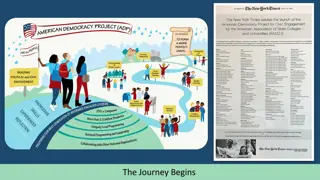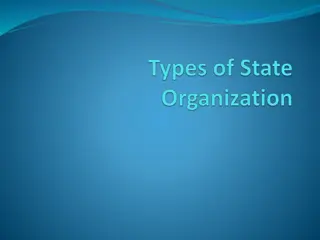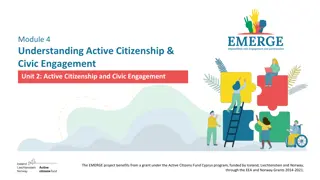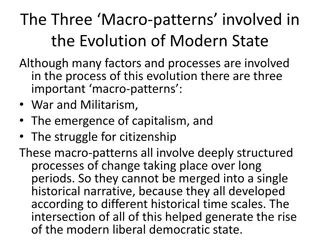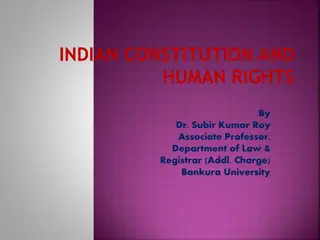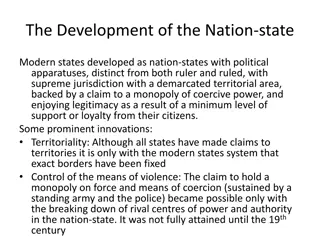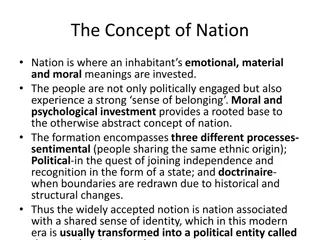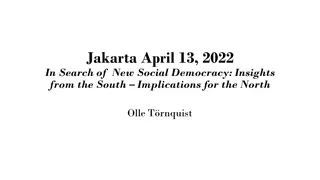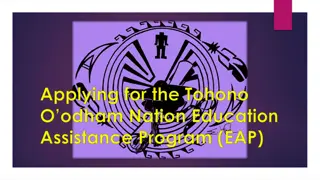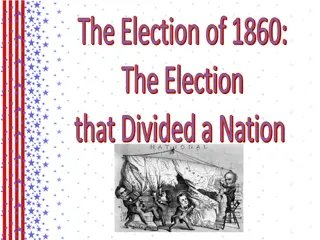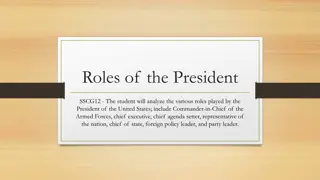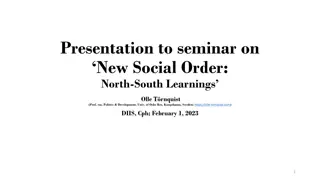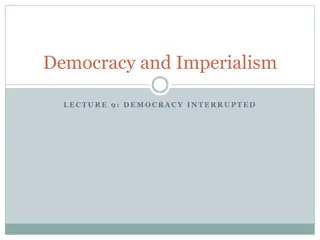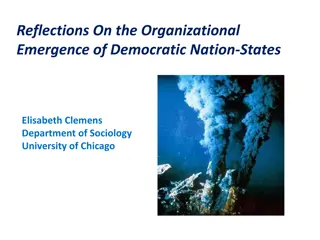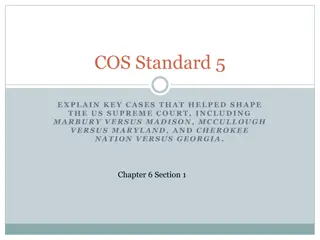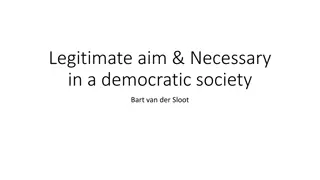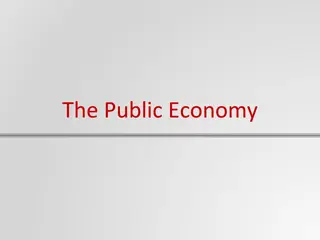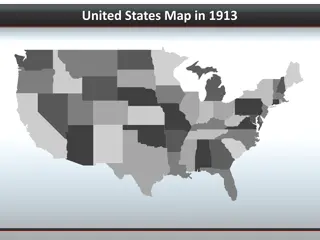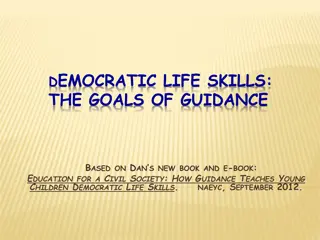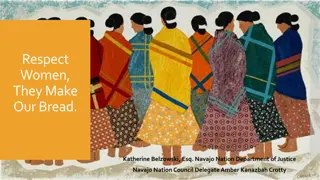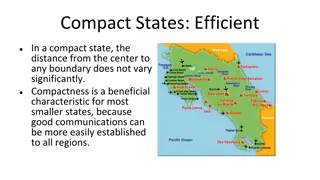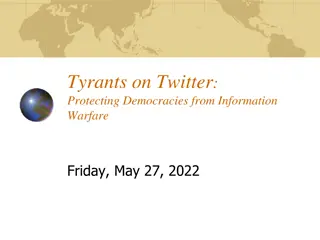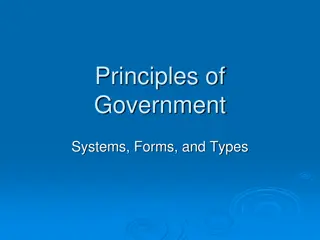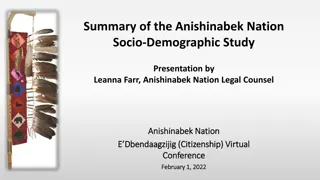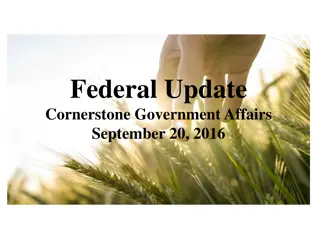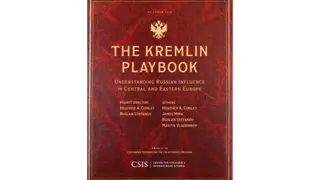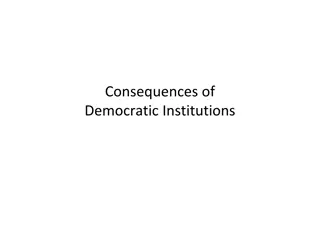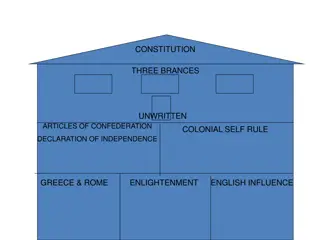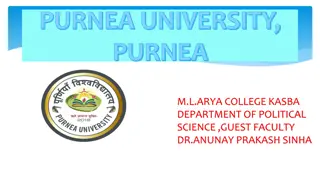The Journey Begins
Initiatives like Voter Education, Deliberative Dialogue, and addressing Global Challenges are pivotal in fostering civic engagement and informed citizenship. The Theory of Change underscores the importance of integral, relational, organic, and generative approaches in democratic engagement efforts,
0 views • 16 slides
Overview of Unitary, Confederal, and Federal States
Unitary, confederal, and federal states each have distinct characteristics regarding the distribution of power between central and subnational governments. Unitary states have centralized governance, while devolved states like the UK grant autonomy to subnational entities. Decentralized states trans
0 views • 22 slides
Democracy in the EU and Upcoming European Elections Overview
Explore key findings on the state of democracy in the EU, upcoming European elections, and global trends. Europe remains a high-performing region, with Central Europe showing notable democratic growth. Discover how the EU acts as a countervailing institution and challenges faced by strong democracie
0 views • 15 slides
Understanding Active Citizenship & Civic Engagement: Definitions and Importance
Encouraging citizens and organizations to actively participate in civil society and decision-making processes is vital for a democratic society. Active citizenship involves participation in public affairs, civil society, and political life with a focus on human rights, democracy, and community well-
1 views • 22 slides
Evolution of Modern State: Three Macro-Patterns Explored
The evolution of the modern state is influenced by three key macro-patterns: War and Militarism, Emergence of Capitalism, and Struggle for Citizenship. These patterns involve deep processes of change over long periods, contributing to the development of modern liberal democratic states. War and Mili
0 views • 13 slides
Indian Constitution and Human Rights: A Comprehensive Overview
The Indian constitution embodies justice in social, economic, and political spheres, aiming for the full development of every individual. Rooted in democratic principles and socialism, the preamble emphasizes liberty, equality, and justice. Drawing wisdom from leaders like Dr. Ambedkar and Mahatma G
0 views • 10 slides
Evolution of the Nation-State and Modern State Concepts
The development of the nation-state marks a significant shift in political organization, characterized by centralized power, territoriality, and legitimacy gained through citizen support. Key innovations include territorial demarcation, monopolization of coercion, impersonal power structures, and th
0 views • 8 slides
Understanding the Concept of Nation and Ethnic Identity
The concept of nation is deeply rooted in emotional, material, and moral investments, leading to a strong sense of belonging. Various scholars present different perspectives on nationhood, from sentimental and political processes to the debate on whether a nation is a political or cultural entity. N
1 views • 15 slides
Evolution of State Formation and Nation-Building: A Historical Perspective
Explore the intricate evolution of state formation and nation-building throughout history, examining various patterns and phases from the origins of the state to the emergence of nationhood. Delve into the critical intersections between state institutions, nation-building processes, and the idea of
0 views • 17 slides
Insights into the Evolution of Social Democracy in the Global Context
Exploring the challenges and transitions in social democracy from both Northern and Southern perspectives, this research delves into the complexities of needs-driven development based on social justice through democratic means. The author reflects on the decline of social democratic movements and pr
0 views • 15 slides
Tohono O'odham Nation Education Assistance Program Details
This presentation provides essential information on the Tohono O'odham Nation Education Assistance Program, including program qualifications, important deadlines, required steps, and necessary documents. Applicants must be enrolled Tohono O'odham Nation members, high school graduates or GED recipien
0 views • 16 slides
The Election of 1860: A Divisive Campaign for the Future of the United States
The 1860 election was a significant moment in American history, marked by ideological divisions and the rise of Abraham Lincoln. The Republican Party, Southern Democratic Party, Democratic Party, Northern Democratic Party, and Constitutional Union all played crucial roles in shaping the outcome. The
1 views • 14 slides
The Role of Sport in Nation Building: Cultivating Positive Behavior through Sporting Events
Sport plays a crucial role in nation building by fostering a sense of unity, pride, and positive behavior among participants and spectators. It serves as a platform to promote tolerance, respect, and togetherness, ultimately contributing to a cohesive society. Through exposure to positive behavior p
0 views • 9 slides
Insights into Voting Systems and Arrow's Impossibility Theorem
The content delves into various voting systems, including the conditions necessary for a voting system to be fair and democratic. It discusses the challenges faced by democratic voting systems, such as Arrow's Impossibility Theorem, which states that no voting system can satisfy all desirable axioms
0 views • 20 slides
Roles of the President of the United States: A Comprehensive Overview
The President of the United States fulfills various crucial roles, including Commander-in-Chief of the Armed Forces, chief executive, chief agenda setter, representative of the nation, chief of state, foreign policy leader, and party leader. From inspiring the nation as Chief of State to shaping for
0 views • 9 slides
Social Democratic Politics: Pillars and Strategies for Transformation
Social democratic politics is rooted in democratic collectivities and rights, aiming to reshape capitalism through reform, regulation, and transformative strategies. Olle Törnquist delves into the historical foundations and the need for comprehensive reforms to challenge the dominant logics of capi
3 views • 10 slides
Exploring Values Education in Nordic Preschools
This study delves into the perception and handling of values in Nordic preschools, focusing on caring, disciplinary, and democratic values. It aims to uncover whether conflicting or co-existing values prevail within individual preschools and across Nordic countries. Definitions of values, including
0 views • 16 slides
Challenges to Democracy: An Historical Perspective
Explore the historical instances of democracy being interrupted in Ancient Athens, from the Periclean Peloponnesian War to the oligarchic regimes of 411 and 403 BC. Delve into the reasons behind the dissolution of democracy, the responses of Athenians to such interruptions, and the oligarchs' aims t
0 views • 24 slides
Dynamics of Democratic Nation-States and Organizational Change
Insights on the emergence of democratic nation-states, the role of networks in democratic revolutions, challenges in defining democratic governance, and the impact of redundancy on organizational stability and change are explored in this thought-provoking discussion by Elisabeth Clemens.
0 views • 25 slides
Democratic Lawmaking in the EU: Promises and Pitfalls of the Ordinary Legislative Procedure
This presentation explores the evolution and impact of the Ordinary Legislative Procedure (OLP) in the European Union, discussing its democratic innovations and achievements post-Lisbon. Topics covered include the implementation of OLP, its democratic implications, and the use of trilogues as negoti
0 views • 11 slides
Key US Supreme Court Cases: Marbury v. Madison, McCullough v. Maryland, Cherokee Nation v. Georgia
The landmark cases of Marbury v. Madison, McCullough v. Maryland, and Cherokee Nation v. Georgia significantly shaped the US Supreme Court. Marbury v. Madison established judicial review, McCullough v. Maryland clarified federal authority, and Cherokee Nation v. Georgia addressed tribal sovereignty.
0 views • 8 slides
Legitimate Aims in a Democratic Society - Exam Preparation Overview
Exam preparation on legitimate aims in a democratic society focusing on Article 8 of the ECHR, including the right to respect private and family life, security concerns, national security, public safety, prevention of disorder or crime, and more. The content covers necessary aspects for understandin
0 views • 70 slides
Perspectives on Modernization, Development, and Democracy
Various perspectives on the relationship between modernization, development, and democracy are explored, including the linear view of democracy as a modernization endpoint, the trade-off between development and democracy, and the case for democracy despite authoritarian advantages. The debate betwee
0 views • 16 slides
Challenges of Democratic Governments in Economic Policy Making
Democratic governments face challenges when enacting economic policies due to the influence of voter participation, special interest politics, and the limitations of majority rule. This presentation explores the complexities of democratic decision-making in economic matters, examining the impact of
0 views • 20 slides
Solving N-Queens and Missionaries & Cannibals Problems Using Search Algorithms
Explore the application of search algorithms in solving classic problems like the N-Queens problem and the Missionaries & Cannibals dilemma. Understand the concept of states, start states, goals, transitions, and goal states in these puzzles. Dive into the strategies of adding states to a to-visit l
0 views • 8 slides
Women's Suffrage Progress in the United States
Explore the historical timeline of women's suffrage in the United States from 1913 onwards, highlighting when different states granted women the right to vote. The provided images visually depict the states granting voting rights for women over the years, including those that did so before and after
0 views • 5 slides
Nurturing Democratic Life Skills in Children: A Guide to Promoting Positive Development
Explore the concept of Democratic Life Skills (dLS) and the essential guidance needed to cultivate these skills in young children. Learn about the educational outcomes for a democratic society and the historical and psychological roots of dLS. Discover how to support children in finding acceptance,
0 views • 14 slides
Navajo Nation Employment Rights and Equality Laws
This content discusses the Navajo Nation's commitment to respecting and protecting women's rights, combating sexual discrimination through laws and policies, and ensuring equal employment opportunities for the Navajo workforce. It emphasizes maintaining a safe and harassment-free work environment, e
0 views • 13 slides
Characteristics of Different State Shapes Explained
Compact states have efficient communication due to their balanced shape, while prorupted states extend for access or disruption. Elongated states face potential isolation issues, and fragmented states are problematic with territorial pieces separated. Perforated states, like South Africa, completely
0 views • 17 slides
Tyrants on Twitter: Safeguarding Democracies from Information Warfare
Exploring the central argument of the new Cold War with China, focusing on military, economic, and information competition. The discussion addresses the threat posed by Chinese and Russian information warfare to Western democracies, emphasizing the need for regulatory harmonization among leading Wes
0 views • 17 slides
Principles of Government Systems and Types Explained
Explore the fundamental features of different government systems such as unitary, confederal, federal, autocratic, oligarchic, democratic, presidential, and parliamentary. Learn about the various forms of government, theories on the origin of states, and key characteristics of democratic government
0 views • 21 slides
Insights from Anishinabek Nation Socio-Demographic Study Presentation
An overview of the Anishinabek Nation Socio-Demographic Study presented by Leanna Farr focused on various factors such as language usage, population trends, legislative impacts, and projections related to the Registered Indian population growth. The study highlights demographic shifts, language patt
0 views • 16 slides
Lummi Nation Health & Wellness Reform Task Force Initiatives
The Lummi Nation is actively engaging in health reform initiatives through the establishment of a task force focused on maximizing benefits from national health reform efforts. The task force aims to expand healthcare services, eliminate income barriers to access, and implement disease prevention an
0 views • 17 slides
Improving First Nation Infrastructure and Housing through Fiscal Management Act Model
The presentation at the AFN National Housing and Infrastructure Forum in October 2017 highlighted the challenges faced by First Nation communities in developing sustainable infrastructure. The current system is inefficient, prompting the exploration of alternatives like the First Nations Fiscal Mana
1 views • 9 slides
Analysis of Democratic Dominance in Presidential Elections and Potential Senate Seat Flips in 2016
Democratic candidates have consistently won Democratic stronghold states in presidential elections since 1992, securing a significant portion of the Electoral College votes. Meanwhile, Republicans face challenges in holding onto Senate seats in states like Illinois, Wisconsin, New Hampshire, Pennsyl
0 views • 8 slides
Russian Economic Warfare in Central and Eastern Europe: Challenges and Impacts
Russia employs overt and covert economic warfare tactics in Central and Eastern Europe, including energy blockages and media manipulation. This strategy poses challenges to democratic values and institutions. The study examines the correlation between Russia's economic footprint and democratic stand
0 views • 24 slides
Perspectives on Democratic Institutions: Majoritarian vs. Consensus Vision
Democratic institutions have consequential impacts on political representation, economic policy, ethnic conflict, and democratic survival. Two distinct visions, majoritarian and consensus, shape the distribution of power in governance. The majoritarian vision concentrates power in the hands of the m
0 views • 112 slides
Navigating Loss and Grief in First Nation Life Workshop
This workshop provides a culturally relevant and supportive environment for health care providers and others offering family support to explore loss, grief, and bereavement in First Nation communities. Participants will enhance their awareness, knowledge, and skills in reflective practice to process
0 views • 48 slides
Foundations of Democratic Governance: From Ancient Roots to Modern Principles
Explore the evolution of democratic governance from the foundations laid in Ancient Greece and Rome to the core principles of Enlightenment thinkers and English influences, culminating in the establishment of democratic principles in the Declaration of Independence and the American Constitution. Dis
0 views • 10 slides
Overview of the United States Congress and Political System
The United States Congress is the bicameral legislature of the federal government, composed of the House of Representatives and the Senate. Representatives are elected every two years based on districts, while senators serve six-year terms elected at-large in their states. Congress consists of 535 m
0 views • 6 slides
